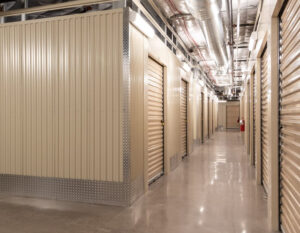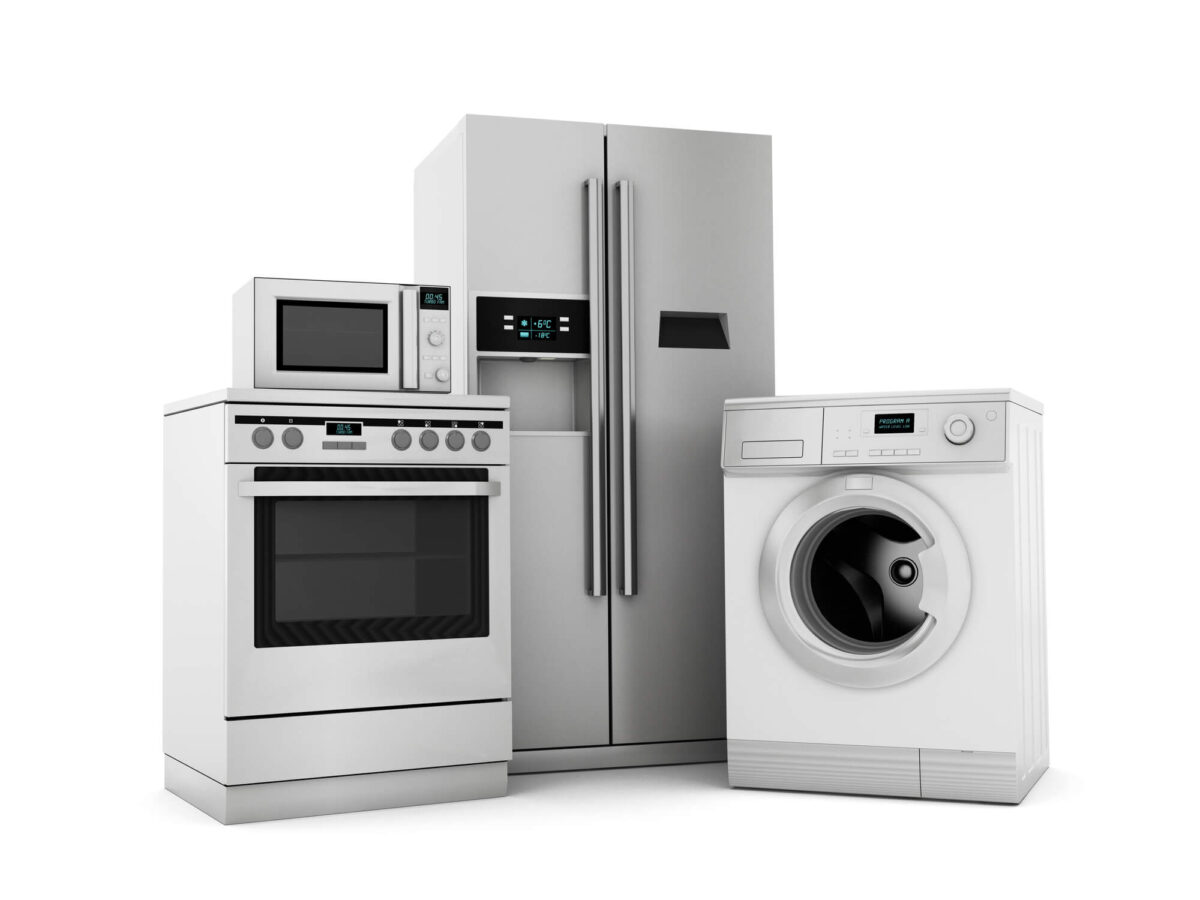When it comes to storing appliances in a storage unit, the key is not just tossing them in and hoping for the best. Proper storage ensures that your appliances remain in good condition and ready for future use. Whether you’re moving, downsizing, or simply decluttering, here’s a comprehensive guide on how to store appliances in a storage unit safely and efficiently.
1. Clean and Prepare
Cleaning and preparing appliances before storing them is crucial for keeping them in good shape. First, get rid of any food bits, dust, or grime. For refrigerators and freezers, defrost them thoroughly to stop mold and mildew. Drying everything well is essential to avoid rust or rancid smells.
Use a gentle cleaner to wipe everything down, then let it air dry completely before packing it up. Doing this keeps your appliances clean and safe while in self-storage, ensuring they work great when you need them again.
2. Gather Supplies
Before packing your appliances for storage, ensure you have all the necessary supplies. Get sturdy boxes, packing tape, bubble wrap, packing peanuts, furniture blankets, and appliance covers to safeguard your items during transportation and appliance storage.
Appliance-specific moving straps or dollies can be helpful, particularly for heavier kitchen appliances, ensuring safe and secure transport. The right supplies streamline the packing process and offer additional protection to your appliances, keeping them in excellent condition while stored.
3. Disassemble if Possible
Taking apart your appliances before storing them is a good idea, especially if they come with parts or shelves that can be removed. This saves space in your self-storage unit and lowers the chances of damage when moving and while in storage. Keep all the small pieces together in a labeled bag or box to find them easily when you need them again.
By disassembling your appliances before storing them, you can make the process smoother, protect fragile parts, and better use the available space.
4. Protect with Packaging
Once you’ve cleaned and, if necessary, disassembled your appliances, it’s important to protect them with the right packaging materials. Wrap fragile parts like glass doors or shelves with bubble wrap to cushion against bumps. Use furniture blankets to shield surfaces from scratches and dents while in transit or storage.
Secure everything firmly with packing tape to keep it in place and reduce the risk of damage. Following these steps is vital to keep your appliances in good condition until you need them again.
5. Utilize Vertical Space
To store your appliances efficiently in a self-storage unit:
- Think smart about how you place them.
- Stack lighter things on top of heavier ones to save space and keep everything stable.
- Put big appliances, like the refrigerator and washing machine, at the back for a solid base.
This leaves space in the front for smaller stuff like microwaves and toasters, making them easy to get to without rearranging everything. With this setup, you’ll have a neat storage space that uses every inch well and keeps your appliances handy whenever needed.
6. Allow for Ventilation
Ensuring proper ventilation is crucial in safeguarding your appliances during storage. Without adequate airflow, moisture buildup can occur, resulting in rust, corrosion, and unpleasant odors. To mitigate these risks, leaving sufficient space between appliances and the walls is essential to promote air circulation within the storage unit.
Additionally, incorporating moisture-absorbing products such as silica gel packets or dehumidifiers can provide an extra layer of protection against moisture-related damage. By prioritizing ventilation and moisture control, you can maintain the integrity of your appliances and preserve their condition for future use.
7. Label and Organize
Organization is vital when it comes to storing appliances in a self-storage unit. By labeling each box or appliance with its contents and where it belongs, you streamline the process of finding what you need without rummaging through stacks of boxes.
Creating a straightforward inventory list also helps you keep track of everything stored in your unit, adding an extra layer of convenience. With these organizational strategies in place, you can efficiently manage your storage space and easily access your appliances whenever necessary.
8. Check Regularly
Regularly monitoring your stored appliances is crucial to maintaining their condition over time. Take the time to inspect them periodically for any signs of moisture buildup, pests, or damage. Addressing these issues promptly can prevent them from escalating and causing further harm to your appliances.
Additionally, consider rotating the position of items if needed to distribute weight evenly and avoid putting prolonged pressure on specific areas. By staying vigilant and proactive, you can ensure that your appliances remain in optimal condition while in storage, ready for future use when you need them.

Conclusion
Storing appliances in a self-storage unit is essential for keeping them safe and ready to use in the future. Here are some simple tips to help you store your appliances effectively. First, clean each appliance to remove any dust or dirt. Defrost your refrigerator and microwave and wipe them down with a mild detergent. Keep all electrical cords, hoses, and manuals with their respective appliances.
Store upright appliances like fridges and dishwashers stacked to save space. Make sure appliances are easily accessible by placing them near the front of the unit. Use a checklist to keep track of what you’ve stored. By following these easy self storage tips, you can ensure that your appliances stay in good condition while in storage.
Reserve your Storage Unit today!
At McDowell Mountain Community Storage, we’re committed to storing your appliances safely and securely. Our climate-controlled self-storage units in Scottsdale, Arizona, provide the ideal environment for preserving the condition of your valuable appliances. Whether you’re storing refrigerators, ovens, or washing machines, our facilities are equipped to maintain optimal temperature and humidity levels, protecting your appliances from damage caused by extreme weather conditions.
With our expertise and state-of-the-art storage solutions, you can rest assured that your appliances will remain in top-notch condition until you’re ready to use them again. Contact us today to rent a storage unit and learn more about how we can assist you in storing your appliances effectively.
FAQs: How to Store Appliances in a Storage Unit
1. What are the benefits of using climate-controlled storage for my appliances?
Climate-controlled storage helps maintain optimal temperature and humidity levels, protecting appliances from damage caused by extreme weather, moisture buildup, and potential rust or mold growth.
2. How long can I store my appliances in a storage unit?
Appliances can typically be stored for as long as needed, but it’s advisable to check them periodically for moisture buildup or other issues, especially if stored for extended periods.
3. Is it necessary to unplug appliances before storing them?
Yes, unplugging appliances is essential to prevent electrical issues and ensure they are safe for storage. Make sure to keep cords neatly organized and labeled with their respective appliances.
4. Should I use specific cleaning products on my appliances before storage?
Use gentle cleaners that won’t damage surfaces. Avoid harsh chemicals that could leave residues or cause corrosion. For refrigerators, ensure all cleaning agents are thoroughly rinsed out before storage.
5. Can I store appliances that still have food residues?
No, it’s essential to thoroughly clean all appliances to remove food residues, which can attract pests and lead to unpleasant odors. Make sure they are scorched before storing them.
6. What precautions should I take for storing sensitive electronic appliances?
To protect electronic appliances from bumps, wrap them in bubble wrap or furniture blankets. Consider using moisture-absorbing products to prevent humidity-related damage.
7. How can I prevent pests while storing my appliances?
Regularly inspect your storage unit for signs of pests, and consider using pest deterrents like traps or natural repellents. Keeping your appliances clean and free from food particles also helps prevent infestations.
8. Is it advisable to stack appliances in storage?
Stacking appliances should be done with caution. Heavier appliances should be placed at the bottom, while lighter ones can be stacked on top, ensuring stability and reducing the risk of damage.
9. What should I do if I notice moisture in my storage unit?
If you notice moisture, it’s essential to address it immediately. Consider using a dehumidifier, placing moisture-absorbing packets in the unit, and ensuring proper ventilation to prevent damage.
10. Are there any insurance options for stored appliances?
Yes, many storage facilities offer insurance options for stored items. It’s wise to check with your facility about coverage options to protect your appliances against potential damage or loss while in storage.


